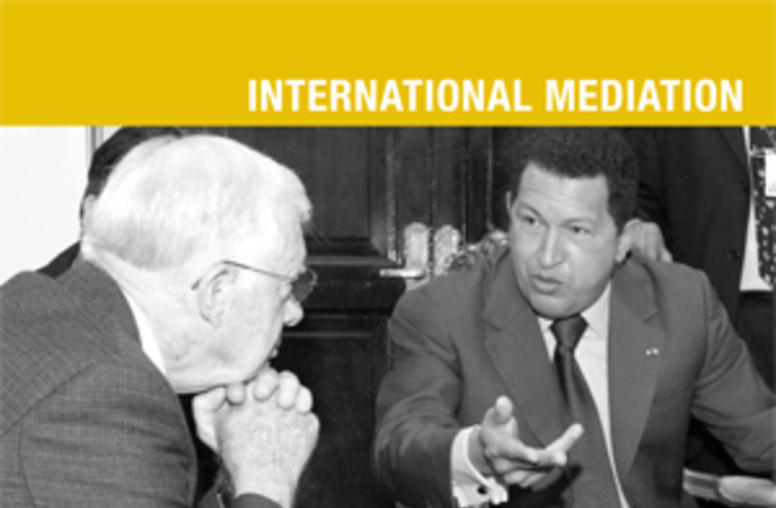Publications
Articles, publications, books, tools and multimedia features from the U.S. Institute of Peace provide the latest news, analysis, research findings, practitioner guides and reports, all related to the conflict zones and issues that are at the center of the Institute’s work to prevent and reduce violent conflict.
U.S. Troops in Iraq after 2011?
After more than eight years on the ground in Iraq, the U.S. military pull-out is proceeding rapidly, with about 40,000 soldiers still in the country as of the end of September. Three of the Institute’s leading specialists on Iraq weighed in on the question of extending U.S. troop presence after the December 31, 2011 deadline.
State's Tauscher Headlines USIP's Academy Course on Nuclear Non-Proliferation and Arms Control
The Institute’s Academy for International Conflict Management and Peacebuilding held the course in nuclear nonproliferation Sept. 26-30. And, for the first time ever, an undersecretary of state, Ellen Tauscher, spoke to an Academy class. Tauscher is the undersecretary of state for Arms Control and International Security Affairs.

International Mediation in Venezuela
International Mediation in Venezuela analyzes the effort of the Carter Center and the broader international community to prevent violent conflict, to reconcile a deeply divided society, and to preserve democratic processes. From their perspective as facilitators of the intervention and as representatives of the Carter Center, Jennifer McCoy and Francisco Diez present an insider account of mediation at the national and international level.
Praise for "Customary Justice and the Rule of Law in War-Torn Societies"
“Brilliantly structured, this important book provides a realistic, honest, and original analysis of the tension between universal human rights and customary justice in post-conflict societies. It argu
Praise for "International Mediation in Venezuela"
“All too often, our understanding of conflict dynamics in a given region is from 80,000 feet up and we thus miss the local texture of relationships that matter on the ground, as well as the non-linear events that can both benefit or plague peacebuilding. This book is the opposite—it is a cliff-hanger, telling the story of the role of international third parties intervening in the Venezuelan conflict (2002–2004) from the perspective of two of the third party actors. The narrative is rich in c...
"International Mediation in Venezuela"
What was the situation in Venezuela at the start of the Carter Center’s intervention? What did the Carter Center aim to achieve in Venezuela? The ultimate goal of preventing violence was achieved by the intervention, but the underlying issues producing polarization and new forms of political exclusion were not resolved. What explains the mixed results of such an unusual international intervention?
Nigerian Foreign Minister Lays Out Ambitious New Agenda for Country
Nigeria’s Foreign Minister, Ambassador Olugbenga Ashiru, visited the U.S. Institute of Peace on September 29 to lay out President Goodluck Jonathan’s agenda.
State Dept.’s Schwartz Calls for Stronger Humanitarian Capabilities
In tackling complex humanitarian crises in the Horn of Africa and elsewhere, the U.S. government will “proceed on two fronts—building our national capacities while strengthening the multilateral system of humanitarian response,” Eric P. Schwartz, the assistant secretary of state for population, refugees, and migration told an audience at the United States Institute of Peace (USIP) on September 28.
"Customary Justice and the Rule of Law in War-Torn Societies"
What dilemma does customary justice present to international justice actors and how does this volume address it? What challenges or constraints do rule-of-law practitioners face when engaging customary justice systems? What are the arguments against engaging with customary justice systems? Why is it so important for international justice practitioners to take customary justice systems into account? What principles does the volume set forth to guide policy and programming in environmen...
Libyan Official Calls for Libyan Lead in Transition
Libya’s National Transitional Council (NTC), the immediate successor to the ousted regime of Col. Moammar al-Qaddafi, needs significant international help to prepare the North African nation for a democratic future, but Libyans themselves must be in the lead, and outside governments and institutions must show patience as Libya tries to address its many challenges, a key senior official in Libya’s new government told an audience at the United States Institute of Peace (USIP) on September 23.